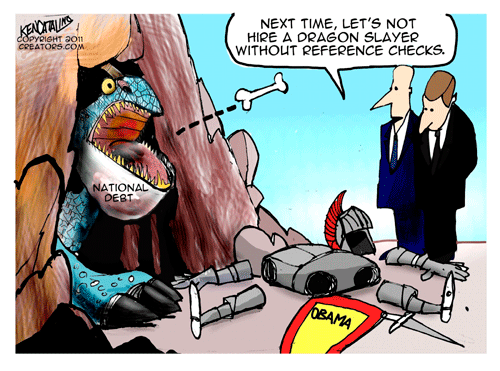This is your morning Open Thread. Pour your favorite beverage and review the past and comment on the future.
Find the past “On This Day in History” here.
April 25 is the 115th day of the year (116th in leap years) in the Gregorian calendar. There are 250 days remaining until the end of the year.
 On this day in 1859, ground broken is for Suez Canal
On this day in 1859, ground broken is for Suez Canal
At Port Said, Egypt, ground is broken for the Suez Canal, an artificial waterway intended to stretch 101 miles across the isthmus of Suez and connect the Mediterranean and the Red seas. Ferdinand de Lesseps, the French diplomat who organized the colossal undertaking, delivered the pickax blow that inaugurated construction.
Artificial canals have been built on the Suez region, which connects the continents of Asia and Africa, since ancient times. Under the Ptolemaic rulers of Egypt, a channel connected the Bitter Lakes to the Red Sea, and a canal reached northward from Lake Timsah as far as the Nile River. These canals fell into disrepair or were intentionally destroyed for military reasons. As early as the 15th century, Europeans speculated about building a canal across the Suez, which would allow traders to sail from the Mediterranean to the Indian Ocean via the Red Sea, rather than having to sail the great distance around Africa’s Cape of Good Hope.
The Suez Canal, when first built, was 164 km (102 mi) long and 8 m (26 ft) deep. After multiple enlargements, the canal is 193.30 km (120.11 mi) long, 24 m (79 ft) deep, and 205 metres (673 ft) wide as of 2010. It consists of the northern access channel of 22 km/14 mi, the canal itself of 162.25 km/100.82 mi and of the southern access channel of 9 km/5.6 mi.
It is single-lane with passing places in Ballah By-Pass and in the Great Bitter Lake. It contains no locks; seawater flows freely through the canal. In general, the Canal north of the Bitter Lakes flows north in winter and south in summer. The current south of the lakes changes with the tide at Suez.
The canal is owned and maintained by the Suez Canal Authority (SCA) of the Arab Republic of Egypt. Under international treaty, it may be used “in time of war as in time of peace, by every vessel of commerce or of war, without distinction of flag.”
Construction by Suez Canal Company
In 1854 and 1856 Ferdinand de Lesseps obtained a concession from Sa’id Pasha, the Khedive of Egypt and Sudan, to create a company to construct a canal open to ships of all nations. The company was to operate the canal for 99 years from its opening. De Lesseps had used his friendly relationship with Sa’id, which he had developed while he was a French diplomat during the 1830s. As stipulated in the concessions, Lesseps convened the International Commission for the piercing of the isthmus of Suez (Commission Internationale pour le percement de l’isthme des Suez) consisting of thirteen experts from seven countries, among them McClean, President of the Institution of Civil Engineers in London, and again Negrelli, to examine the plans of Linant de Bellefonds and to advise on the feasibility of and on the best route for the canal. After surveys and analyses in Egypt and discussions in Paris on various aspects of the canal, where many of Negrelli’s ideas prevailed, the commission produced a final unanimous report in December 1856 containing a detailed description of the canal complete with plans and profiles. The Suez Canal Company (Compagnie Universelle du Canal Maritime de Suez) came into being on 15 December 1858 and work started on the shore of the future Port Said on April 25, 1859.
The excavation took some 10 years using forced labour (Corvée) of Egyptian workers during a certain period. Some sources estimate that over 30,000 people were working on the canal at any given period, that altogether more than 1.5 million people from various countries were employed, and that thousands of laborers died on the project.
The British government had opposed the project of the canal from the outset to its completion. As one of the diplomatic moves against the canal, it disapproved the use the slave labor of forced workers on the canal. The British Empire was the major global naval force and officially condemned the forced work and sent armed bedouins to start a revolt among workers. Involuntary labour on the project ceased, and the viceroy condemned the Corvée, halting the project.
Angered by the British opportunism, de Lesseps sent a letter to the British government remarking on the British lack of remorse a few years earlier when forced workers died in similar conditions building the British railway in Egypt.
Initially international opinion was skeptical and Suez Canal Company shares did not sell well overseas. Britain, the United States, Austria, and Russia did not buy any significant number of shares. All French shares were quickly sold in France
404 BC – Peloponnesian War: Lysander’s Spartan Armies defeated the Athenians and the war ends.
1607 – Eighty Years’ War: The Dutch fleet destroys the anchored Spanish fleet at Gibraltar.
1644 – The Chongzhen Emperor, the last Emperor of Ming Dynasty China, committed suicide during a peasant rebellion led by Li Zicheng.
1707 – The Habsburg army is defeated by Bourbon army at Almansa (Spain) in the War of the Spanish Succession.
1792 – Highwayman Nicolas J. Pelletier becomes the first person executed by guillotine.
1792 – La Marseillaise (French national anthem) is composed by Claude Joseph Rouget de Lisle.
1829 – Charles Fremantle arrives in the HMS Challenger off the coast of modern-day Western Australia prior to declaring the Swan River Colony for the United Kingdom.
1846 – Thornton Affair: Open conflict begins over the disputed border of Texas, triggering the Mexican-American War.
1847 – The last survivors of the Donner Party are out of the wilderness.
1849 – The Governor General of Canada, Lord Elgin, signs the Rebellion Losses Bill, outraging Montreal’s English population and triggering the Montreal Riots.
1859 – British and French engineers break ground for the Suez Canal.
1861 – American Civil War: The Union Army arrives in Washington, D.C.
1862 – American Civil War: Forces under Union Admiral David Farragut demand the surrender of the Confederate city of New Orleans, Louisiana.
1864 – American Civil War: The Battle of Marks’ Mills.
1898 – Spanish-American War: The United States declares war on Spain.
1901 – New York becomes the first U.S. state to require automobile license plates.
1915 – World War I: The Battle of Gallipoli begins-The invasion of the Turkish Gallipoli Peninsula by Australian, British, French and New Zealand troops begins with landings at Anzac Cove and Cape Helles.
1916 – Easter Rebellion: The United Kingdom declare martial law in Ireland.
1916 – Anzac Day commemorated for the first time, on the first anniversary of the landing at Anzac Cove.
1920 – At the San Remo conference, the principal Allied Powers of World War I adopt a resolution to determine the allocation of Class “A” League of Nations mandates for administration of the former Ottoman-ruled lands of the Middle East.
1938 – U.S. Supreme Court delivers its opinion in Erie Railroad Co. v. Tompkins and overturns a century of federal common law.
1939 – DC Comics publishes its second major superhero in Detective Comics #27; he is Batman, one of the most popular comic book superheroes of all time.
1943 – The Demyansk Shield for German troops in commemoration of Demyansk Pocket is instituted.
1944 – The United Negro College Fund is incorporated.
1945 – Elbe Day: United States and Soviet troops meet in Torgau along the River Elbe, cutting the Wehrmacht of Nazi Germany in two, a milestone in the approaching end of World War II in Europe.
1945 – The Nazi occupation army surrenders and leaves Northern Italy after a general partisan insurrection by the Italian resistance movement; the puppet fascist regime dissolves and Benito Mussolini tries to escape.
This day is taken as symbolic of the Liberation of Italy.
1945 – Fifty nations gather in San Francisco, California to begin the United Nations Conference on International Organizations.
1945 – Last German troops retreat from Finland’s soil in Lapland, ending the Lapland War. Military acts of Second World War end in Finland.
1953 – Francis Crick and James D. Watson publish Molecular structure of nucleic acids: a structure for deoxyribose nucleic acid describing the double helix structure of DNA.
1959 – The St. Lawrence Seaway, linking the North American Great Lakes and the Atlantic Ocean, officially opens to shipping.
1960 – The U.S. Navy submarine USS Triton (SSRN-586) completed the first submerged circumnavigation of the globe.
1961 – Robert Noyce is granted a patent for an integrated circuit.
1966 – The city of Tashkent is destroyed by a huge earthquake.
1972 – Vietnam War: Nguyen Hue Offensive – The North Vietnamese 320th Division forces 5,000 South Vietnamese troops to retreat and traps about 2,500 others northwest of Kontum.
1974 – Carnation Revolution: A leftist military coup in Portugal overthrows the Estado Novo regime.
1975 – As North Vietnamese forces close in on the South Vietnamese capital Saigon, the Australian Embassy is closed and evacuated, almost ten years to the day since the first Australian troop commitment to South Vietnam.
1981 – More than 100 workers are exposed to radiation during repairs of a nuclear power plant in Tsuruga, Japan.
1982 – Israel completes its withdrawal from the Sinai peninsula per the Camp David Accords.
1983 – American schoolgirl Samantha Smith is invited to visit the Soviet Union by its leader Yuri Andropov after he read her letter in which she expressed fears about nuclear war.
1983 – Pioneer 10 travels beyond Pluto’s orbit.
1988 – In Israel, John Demjanuk is sentenced to death for war crimes committed in World War II.
2003 – The Human Genome Project comes to an end 2.5 years before first anticipated.
2005 – The final piece of the Obelisk of Axum is returned to Ethiopia after being stolen by the invading Italian army in 1937.
2007 – Boris Yeltsin’s funeral – the first to be sanctioned by the Russian Orthodox Church for a head of state since the funeral of Emperor Alexander III in 1894.
Holidays and observances
*ANZAC Day (Australia, New Zealand)
* Arbor Day (Germany)
* Army Day (North Korea)
* Christian Feast Day:
Mark the Evangelist
Philo and Agathopodes
Pope Anianus of Alexandria
April 25 (Eastern Orthodox liturgics)
* DNA Day
* Flag Day (Faroe Islands)
* Flag Day (Swaziland)
* Freedom Day (Portugal)
* Liberation Day (Italy)
* Malaria Awareness Day (International)
* Military Foundation Day (North Korea)
* Red Hat Society Day
* Robigalia, celebrated on 25 Aprilis. (Roman Empire)
* Sinai’s Liberation Day (Egypt)
 The holiday is over, besides the candy, you most likely have a refrigerator full of leftovers and one of them may be a ham bone. Don’t throw it out just yet, there is still another use for it, soup. Served with a salad and a hearty bread, these soups make a hearty, nutritional meal meal that is also budget conscious. Accompanied by a good beer, this is real comfort food on a chilly Spring evening.
The holiday is over, besides the candy, you most likely have a refrigerator full of leftovers and one of them may be a ham bone. Don’t throw it out just yet, there is still another use for it, soup. Served with a salad and a hearty bread, these soups make a hearty, nutritional meal meal that is also budget conscious. Accompanied by a good beer, this is real comfort food on a chilly Spring evening.1 lb. dry navy beans

 What does “Winning The Future”, the inept slogan of the Obama 2012 campaign, really mean for the middle class and poor, especially the African American, Hispanic and other minority communities? What would re-electing Obama in 2012 mean for the economy? For Glenn Ford at the Black Agenda Report, it means a further economic decline, especially for the Black community where
What does “Winning The Future”, the inept slogan of the Obama 2012 campaign, really mean for the middle class and poor, especially the African American, Hispanic and other minority communities? What would re-electing Obama in 2012 mean for the economy? For Glenn Ford at the Black Agenda Report, it means a further economic decline, especially for the Black community where  Paul Krugman:
Paul Krugman:  On this day in 1859,
On this day in 1859,
Recent Comments